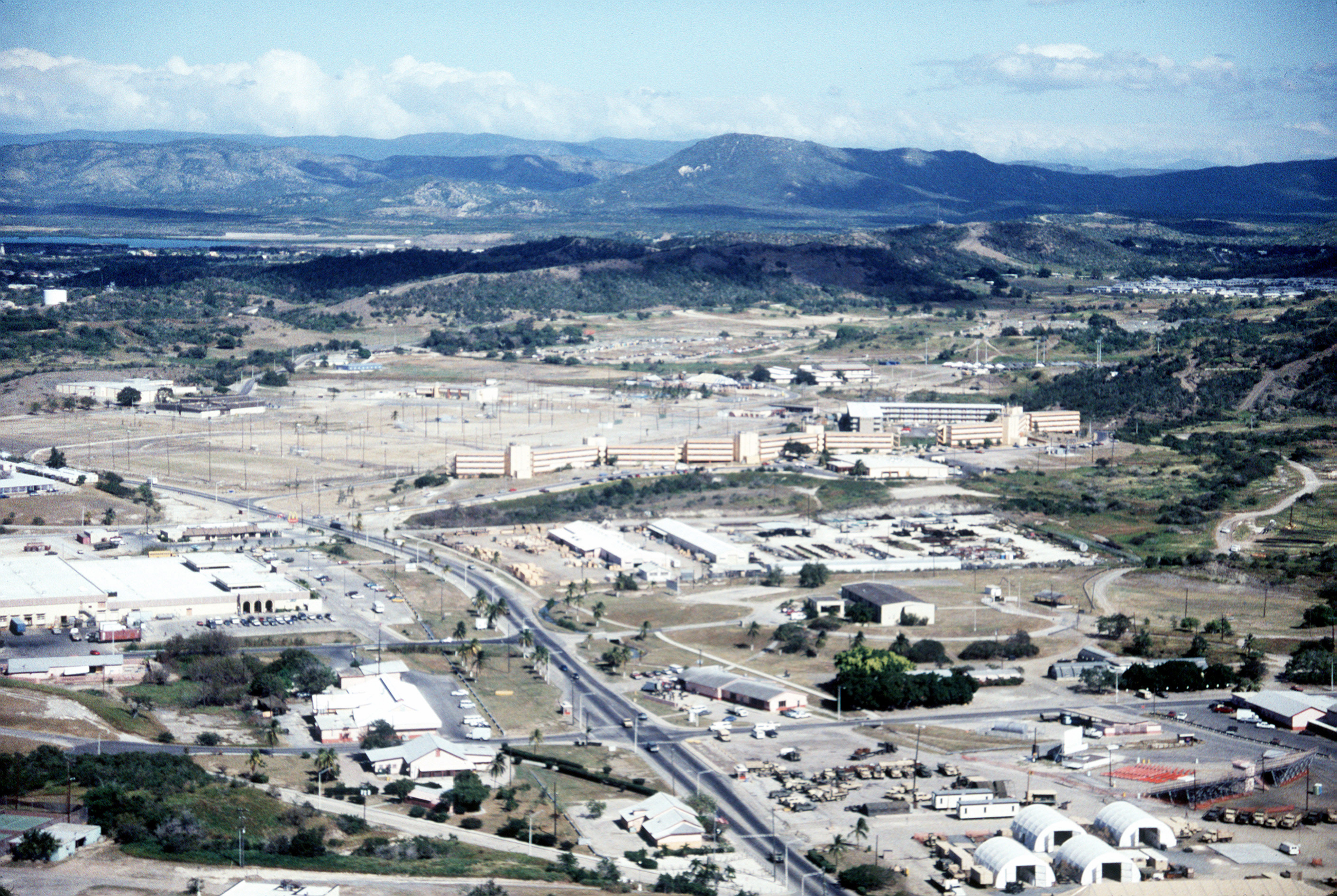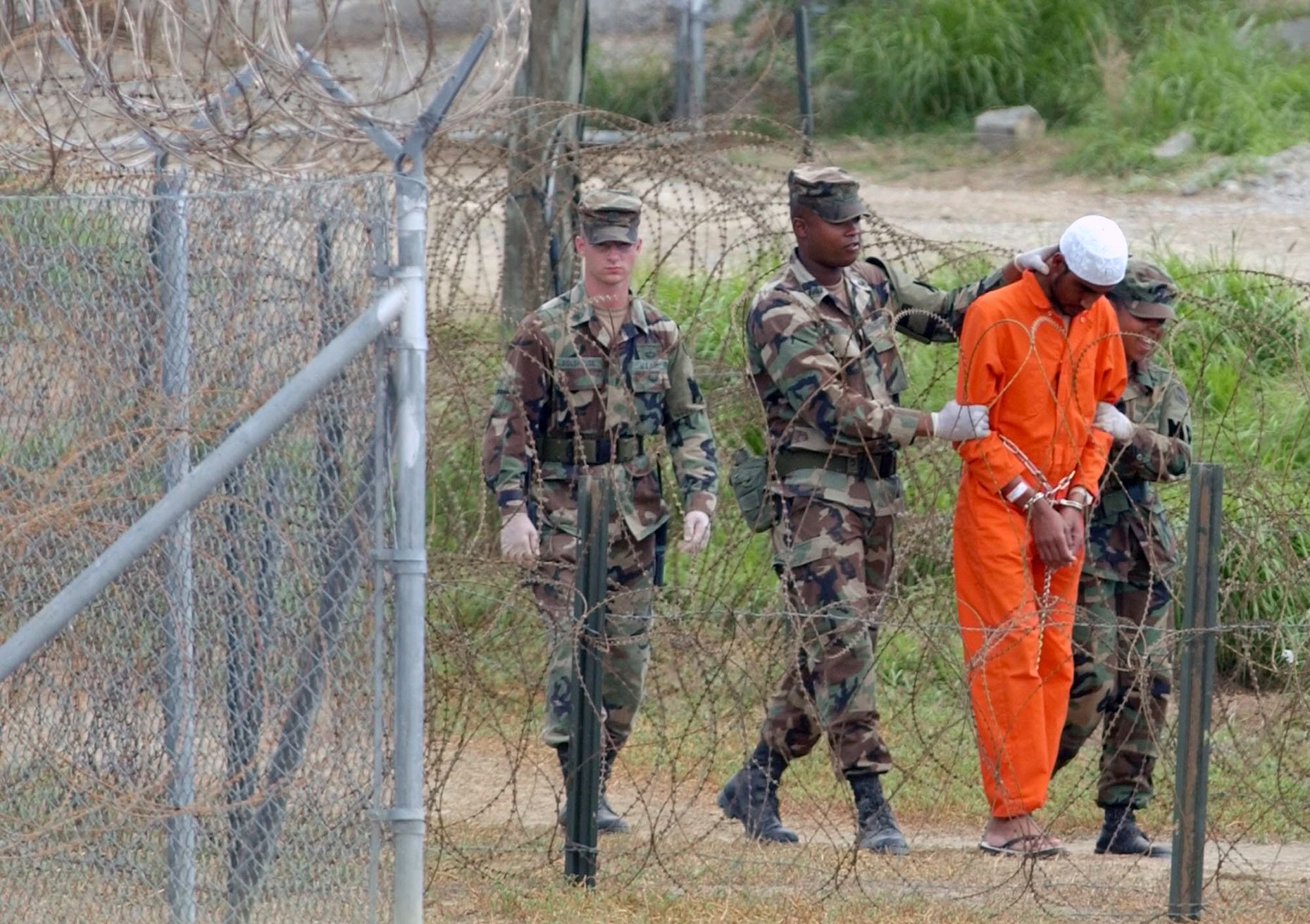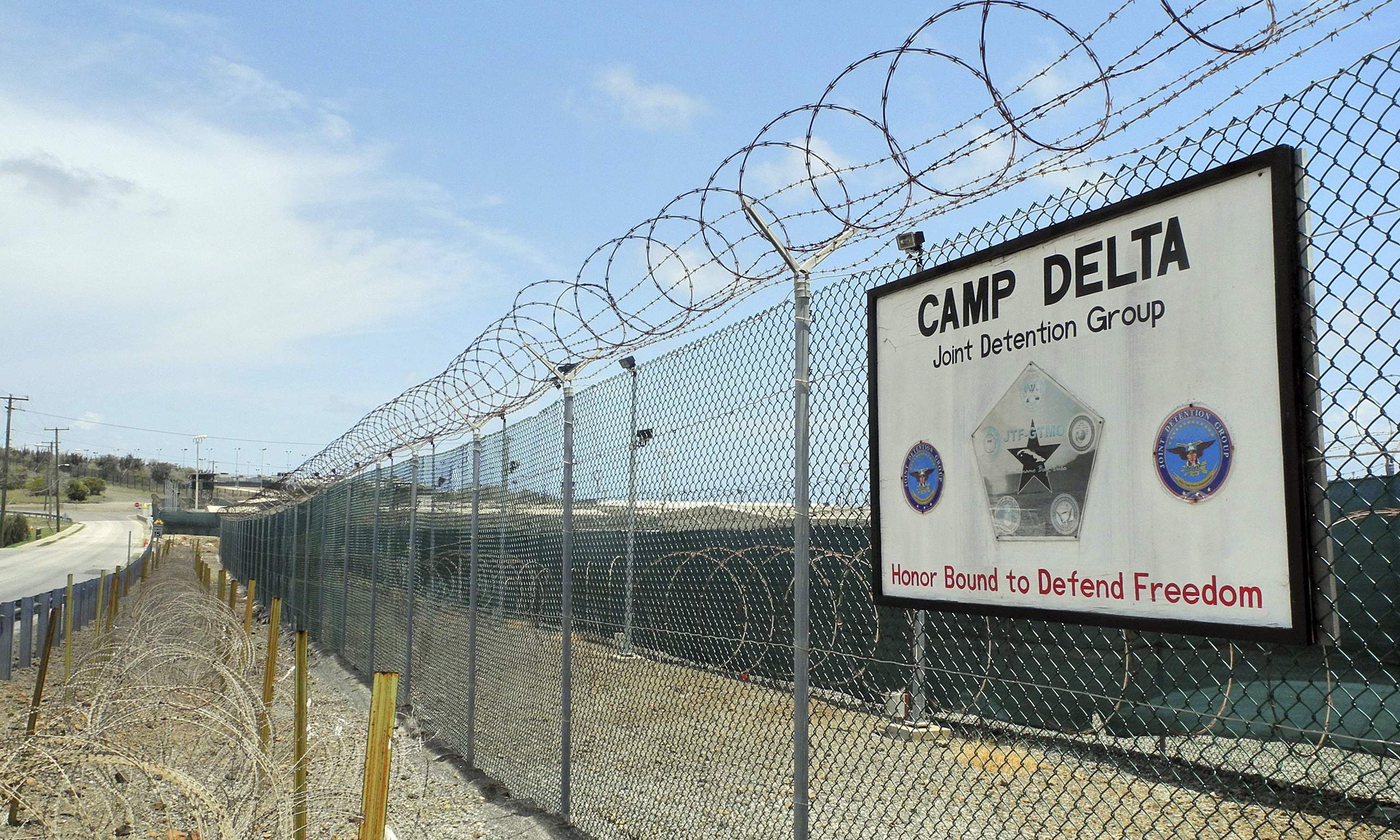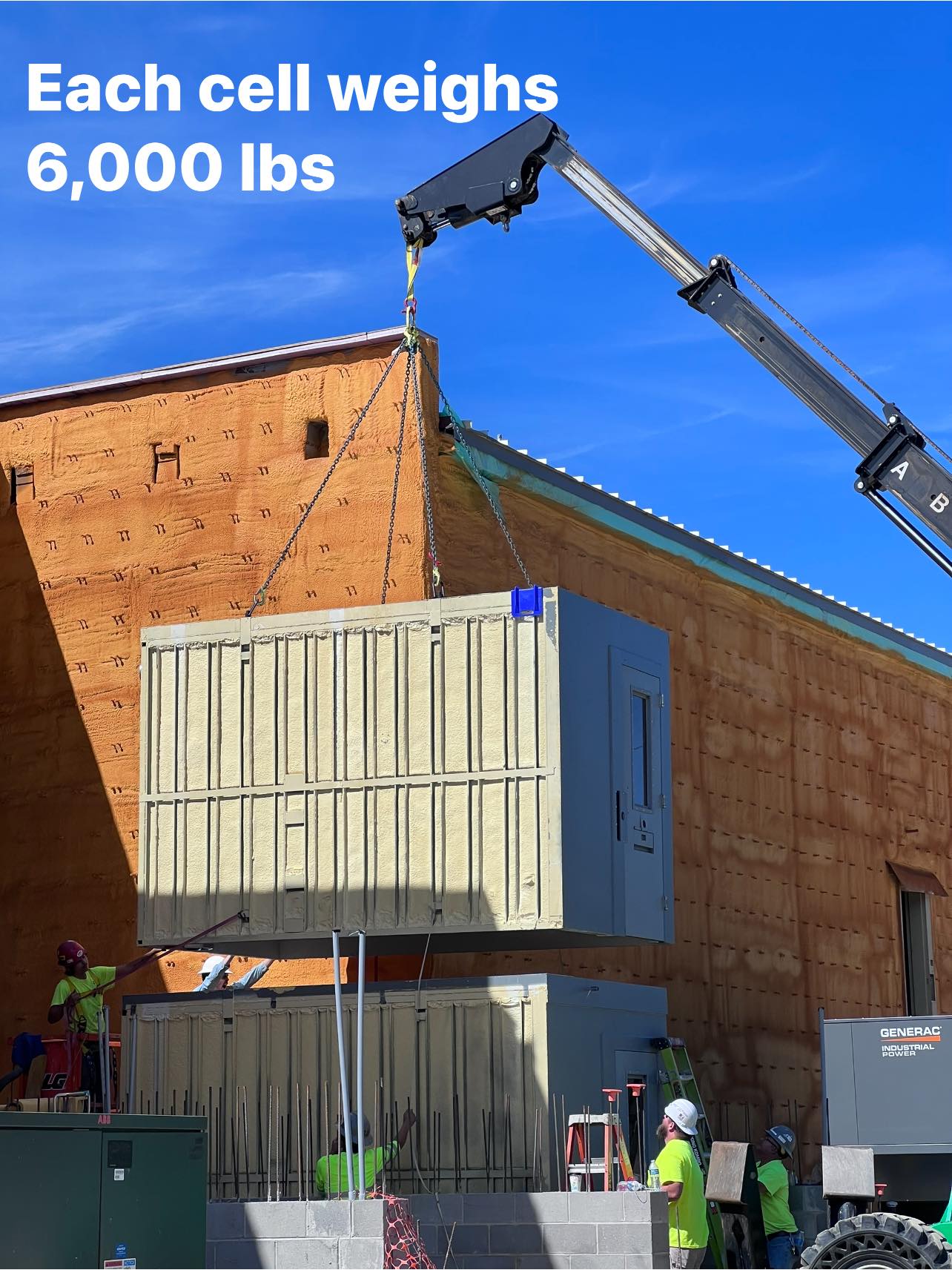
Guantanamo Bay: A Historical And Legal Perspective On The Controversial Detention Facility
Editor's Notes: "Guantanamo Bay: A Historical And Legal Perspective On The Controversial Detention Facility" have published today date".
Our team made a research and crafted this guide to present our reader the important historical and legal aspects of the so-called "War on Terror." In this article, we are going to explore the history of Guantanamo Bay detention camp along with the legal controversies surrounding it. We will also discuss the impact of the camp on the global fight against terrorism and the challenges it poses to international law.
FAQ
This section addresses frequently asked questions and misconceptions regarding the controversial detention facility at Guantanamo Bay.
Question 1: What is the legal basis for the Guantanamo Bay detention facility?
The legal basis for the Guantanamo Bay detention facility is contested. The United States government maintains that it has the authority to detain individuals captured in the "war against terror" outside of the traditional criminal justice system. However, critics argue that the facility violates international law and the Geneva Conventions, which prohibit the indefinite detention of prisoners without trial.
Question 2: How many people are currently detained at Guantanamo Bay?
As of 2023, there are 34 individuals detained at Guantanamo Bay.
Question 3: What are the conditions of detention at Guantanamo Bay?
Conditions at Guantanamo Bay have been criticized by human rights organizations for being harsh and inhumane. Detainees have reported being subjected to prolonged solitary confinement, sleep deprivation, and other forms of abuse.
Question 4: Has the Guantanamo Bay detention facility been successful in preventing terrorism?
There is no clear evidence to suggest that the Guantanamo Bay detention facility has been successful in preventing terrorism. In fact, some experts argue that it may have actually increased the risk of terrorism by creating a breeding ground for anti-American sentiment.
Question 5: What is the future of the Guantanamo Bay detention facility?
The future of the Guantanamo Bay detention facility is uncertain. The United States government has stated that it intends to close the facility, but it has not yet taken any concrete steps to do so.
Question 6: What are the ethical implications of the Guantanamo Bay detention facility?
The Guantanamo Bay detention facility has raised a number of ethical concerns. Critics argue that it is a violation of human rights and that it undermines the rule of law. Supporters of the facility argue that it is necessary to protect the United States from terrorism.
The Guantanamo Bay detention facility is a complex and controversial issue with no easy answers. It is important to consider all sides of the issue before forming an opinion.

Guantanamo Bay Ns Airport - Source www.airports-worldwide.com
Tips to Comprehend Guantanamo Bay: A Historical And Legal Perspective On The Controversial Detention Facility
Guantánamo Bay is a United States military base located in southeastern Cuba. The base has been the subject of controversy since it was established in 1903, and it has been particularly controversial since the United States began using it to detain prisoners in the War on Terror. Understanding the history and legal issues surrounding Guantánamo Bay is essential for comprehending the complexities of the War on Terror.

Guantanamo Bay Detention Center 20 Years Later 2022-01-14 | The - Source www.wnycstudios.org
Tip 1: Understand the History of Guantánamo Bay
Guantánamo Bay was established in 1903 as a coaling station for the United States Navy. The United States acquired the base from Cuba in exchange for $2,000,000 and an annual rent of $2,000. The base was initially used to support the US Navy's operations in the Caribbean Sea. However, after the Spanish-American War, the base was expanded to include a prison camp for Spanish prisoners of war.
Tip 2: Understand the Legal Status of Guantánamo Bay
The legal status of Guantánamo Bay is complex. The United States has claimed that it has sovereignty over the base, but Cuba has never recognized this claim. The United States has also asserted that the prisoners held at Guantánamo Bay are not entitled to the same legal protections as prisoners held in the United States. This claim has been challenged by human rights groups and legal scholars.
Tip 3: Understand the Controversy Surrounding Guantánamo Bay
Guantánamo Bay has been the subject of controversy since it was established. The United States has been criticized for its use of the base as a prison camp, and for the harsh conditions in which the prisoners are held. The United States has also been criticized for its refusal to grant the prisoners access to lawyers and for its use of torture.
Tip 4: Read the Article
The article Guantanamo Bay: A Historical And Legal Perspective On The Controversial Detention Facility provides a comprehensive overview of the history, legal status, and controversy surrounding Guantánamo Bay. The article is written by a legal scholar with expertise in international law and human rights. The article is well-researched and provides a balanced perspective on the issue.
Understanding the history and legal issues surrounding Guantánamo Bay is essential for comprehending the complexities of the War on Terror. The article Guantanamo Bay: A Historical And Legal Perspective On The Controversial Detention Facility is a valuable resource for anyone who wants to learn more about this important issue.
Guantanamo Bay: A Historical And Legal Perspective On The Controversial Detention Facility
Guantanamo Bay, a U.S. military prison in Cuba, has been the subject of intense scrutiny and controversy since its establishment in 2002. Six key aspects that shed light on this facility's historical and legal complexities include:
- Extrajudicial Detention: Detainees held indefinitely without trial.
- Torture Allegations: Accusations of systematic abuse of prisoners.
- Legal Challenges: Ongoing legal battles over the legality of the facility.
- Political Symbol: A flashpoint in debates about terrorism and human rights.
- International Condemnation: Widespread criticism from human rights organizations.
- Symbolic Closure: President Obama's pledge to close the facility, which remains unfulfilled.

Prisoners released from Guantanamo Bay - Source www.winknews.com
These aspects underscore the complexities of Guantanamo Bay. The extrajudicial detention and torture allegations raise profound moral and legal questions. The legal challenges have tested the limits of executive authority. Its status as a political symbol has fueled debates about the balance between security and human rights. International condemnation highlights the global outrage over the facility's practices. Finally, the symbolic closure, while intended to rectify past wrongs, remains a testament to the enduring legacy of Guantanamo Bay.
Guantanamo Bay: A Historical And Legal Perspective On The Controversial Detention Facility
The Guantanamo Bay detention camp is a controversial facility that has been used to hold suspected terrorists and other individuals captured in the "War on Terror" since 2002. The camp has been criticized for its harsh conditions, lack of due process, and use of torture, and has been the subject of numerous legal challenges.

Project Update: Nash County Detention Facility, Nashville, NC - Daniels - Source www.danddcc.com
The camp is located on the Guantanamo Bay Naval Base in Cuba, which is a territory that is leased to the United States by the Cuban government. The camp was established in the aftermath of the September 11 attacks, and was initially used to hold suspected al-Qaeda operatives. However, the camp has since been used to hold individuals from a variety of countries, including Afghanistan, Iraq, and Yemen.
The detainees at Guantanamo Bay are held without charge or trial, and have been subjected to a variety of abuses, including sleep deprivation, waterboarding, and other forms of torture. The camp has also been criticized for its lack of due process, as the detainees have not been given access to lawyers or allowed to challenge their detention in court.
The Guantanamo Bay detention camp has been the subject of numerous legal challenges, both in the United States and abroad. In 2004, the Supreme Court ruled that the detainees at Guantanamo Bay were entitled to the right to habeas corpus, and ordered the government to either charge them with a crime or release them. However, the government has continued to hold the detainees without charge, and has refused to release them.
The Guantanamo Bay detention camp is a controversial facility that has been condemned by human rights organizations and criticized by governments around the world. The camp is a symbol of the excesses of the "War on Terror" and a reminder of the importance of due process and the rule of law.
The Guantanamo Bay detention camp is a serious violation of human rights. The detainees are held without charge or trial, and have been subjected to torture and other forms of abuse. The camp is a symbol of the excesses of the "War on Terror" and a reminder of the importance of due process and the rule of law.
Table: Key Facts About Guantanamo Bay Detention Camp
| Opened: | January 11, 2002 |
| Location: | Guantanamo Bay Naval Base, Cuba |
| Number of detainees: | 41 (as of January 2023) |
| Number of detainees released: | 779 (as of January 2023) |
| Number of detainees who have died in custody: | 9 (as of January 2023) |
Recomended Posts


